Benidorm's plan for Spanish tourists to return to their beaches this summer
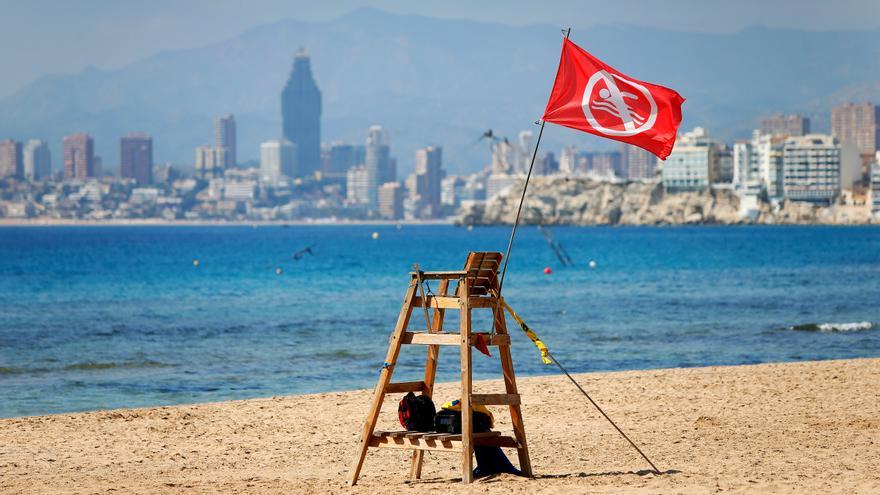
More than half a century ago, the then mayor of Benidorm - the prolific Pedro Zaragoza - devised one of many marketing maneuvers to attract more tourists.
Zaragoza had already advertised Benidorm abroad and in a large part of Spain, but saw that the Basques resisted him. In collaboration with the Bilbao City Council and the Caja de Ahorros Vizcaína, the mayor invited 120 Biscayan newlyweds to spend their honeymoon there. The idea was called Operation B-B, from Bilbao-Benidorm. Since then, thousands of Basques spend their holidays and other long seasons there. Even the center has a pintxos area known as "the street of the Basques".
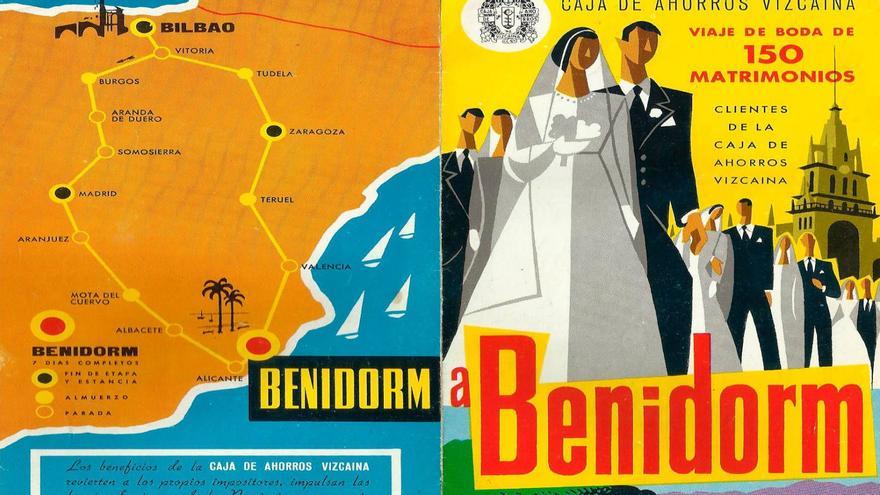
Brochure of Operation B-B (Bilbao-Benidorm)
That was in 1964. Fifty-six years later, the director of tourism and the current mayor still manage to seduce new visitors. More now, when the pandemic threatens to ruin the season and do special damage to its main economic engine. "We cannot stay saying: this is so. I will do everything I can to think of an opportunity," says Leire Bilbao, director of the public-private foundation Visit Benidorm. "There are those who wait for solutions from above. And above they have better experts, but while they go down we try to find a solution. We have limitations, but we are the ones who best know the destination.
The PATTI plan
Bilbao speaks with humility, but the truth is that Benidorm faces the crisis with part of the work done. In recent months, the city had prepared a tourist health care project. The idea was the next step to becoming certified as a smart tourist destination, a UNE standard promoted by Segittur, the tourism innovation agency of the Ministry of Industry. In Spain there are 32 destinations They work in some branch of tourist intelligence, but to date only Benidorm is certified as such.
The project was called PATTI (Protection and Intelligent Technical Tourist Assistance) and consisted of giving older foreign visitors a small device from which to call the hospital if something happened to them, similar to the Red Cross telecare. "Foreign 'seniors' usually come with private insurance. And in Spain, the normal thing if something happens to you is to call 112 or the tour operator, who sends you to the emergency door," explains Bilbao. "First problem: Emergencies saturated by a client who could be paying for the private clinic. If the client is awake, he cannot even communicate in his language, he ends up having more tests and making late decisions. We work with hospitals and tour operators to that customers join, receive the pendant with their details and, if something happens to them, they can call and receive assistance in their language. "
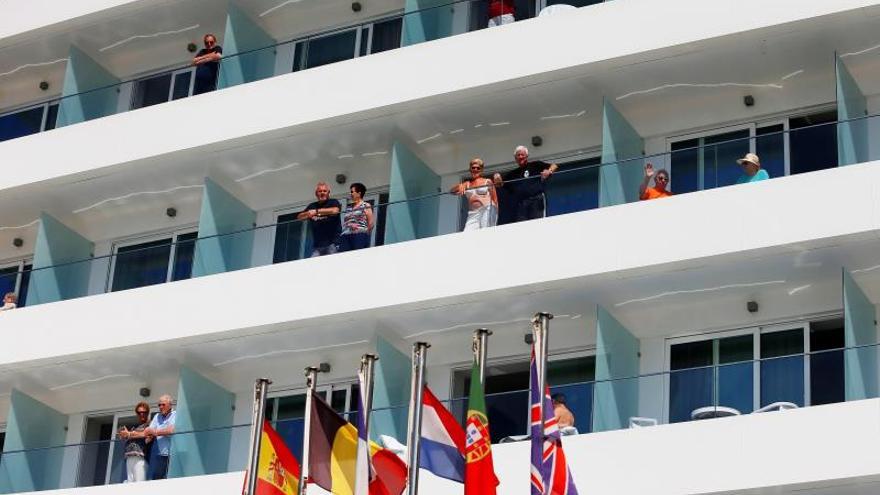
Hoteliers in Benidorm recommend the closure of all hotels in 72 hours
EFE
As in the Red Cross, the pendant warned in case of a fall. "The objective was to position itself better than other destinations, than Turkey and the rest. Say: if you are here, you will be safe. And you do not have to go down the street with all the doctor's papers," says Bilbao. "If we give them security, visitors will be able to spend more time here and more will come."
Benidorm was close to starting with PATTI - first as a pilot to see if it worked and, from there, scale it - when the coronavirus arrived. "We could not start it, because suddenly we had no tourists. For us, who work to bring people and value the wonders of the city, it has been difficult to say: you do not come," he continues. "At the time, we said, if we have PATTI, let's take it for a spin and see how we can get back to normal."
The new normal
On March 13, a day before the Government decreed the state of alarm, Benidorm closed bars, cafes and beaches. The mayor, Antonio Pérez (PP), remembers annoying the news of those days that pointed to tourists on the street buying alcohol. "Suddenly, you find yourself in a city with an 80% occupation in which tourists have no information because nobody has told them," recalls Pérez. "Some had just arrived. Hotels, campsites and apartments were full and supermarkets were kept open. The national receives the message of confinement, but the tourist is on the street with absolute incomprehension. What did we do? Put all the means in place and for having: public address system, 'flyers', police, radio spots ... ".
The decree gave the hotels until the 26th to close, but Benidorm did so on the 18th and sent all the tourists to their home. "Since the 11th we have been working with the British government and the sector. On the 18th we closed and in 72 hours they all left," he continues. "It was a health issue: prestige gives you to avoid contagion as much as possible. That was the decision."
After telling tourists to leave and residents to stay home, the next thing to do is communicate that they are a safe city. Benidorm is the fifth destination that receives the most visitors a year in Spain (behind Madrid, Barcelona, Seville and Palma), of which half are national (in the last year they accounted for 50.5% of the total), followed by English and, to a lesser extent, of Belgians, Dutch, Portuguese and the rest of the Union. Aware that international mobility will take time to recover, the strategy is to attract Spanish visitors first, and Portuguese and French afterwards.
That of security will be the mantra that other destinations will follow. Turespaña launched the 'Spain awaits you' campaign as a starting point. In the Canary Islands, hotels have partnered with a laboratory to test workers and customers. In Benidorm, "how can we do it if we don't have cleaning protocols?" Asks Bilbao. "This is how PATTI Recovery was born: looking for solutions so that, as soon as it is safe, we can activate tourism."
The premise from which they start is that it is useless to have disinfected establishments, with limited capacity and protected workers if the destination does not generate confidence. "In Turkey, hotels have everything inside. Even a water park. Here, in most sun and beach hotels, people go outside," says the director. "We are not working on the idea of a safe hotel or restaurant, but of a safe destination."
The first measure in progress is the testing of the population and the subsequent transfer of data to a map. "Know to act", emphasizes the mayor. "We have started with 700 tests: the security forces, the volunteers that assist the homeless, part of the civil servants and those who are on the front lines. We go hand in hand with the hospitals, which give the information to the Consellería " The map, which will be presented next week, will not have much level of detail for a normal viewer. "That is for Health. But how do I build confidence in tourists? By transferring that I am doing my homework," adds Bilbao. "The city is not infallible and we are against 'free covid' designations, but we want to minimize the risk."
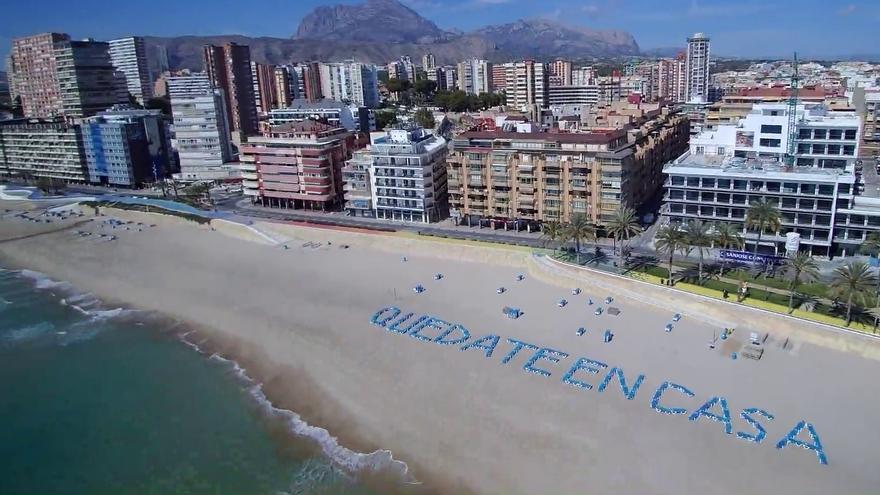
The beaches of Benidorm, empty this Easter
The second phase consists of establishing protocols (cleaning, distancing, capacity) in each subsector, because it is the hotels and restaurants that know their peculiarities best. Also with tour operators, as indispensable as the first ones. "We are seeing how we adapt the platform to them. We need the tour operator, who leaves with a plane full of his country and from there puts his clients on a bus to the hotel, to have a protocol to follow," he says. In the Hosbec employers they agree. "There is no option not to join. It does not help to leave our skin in hotels if the destination does not have similar policies," says Nuria Montes, its secretary general. "How much will it cost us? We don't know. At the moment, the tests and EPIs will be assumed by the companies. We will try to pass it on, because security has a price. Although the scenario will make it difficult."
At the time the activity begins, the previous measures will be certified and the evolution will be controlled. They are still not clear what will happen to the beaches - the mayor asks that their role be "clarified", because they are still closed by decree - but from Visit Benidorm they discard solutions such as cubicles or methacrylate partitions. "We do not believe in the beaches with things in between. Ours are raked every night. How are you going to rake and place some items every day?" Says Bilbao. "Possibly there are restrictions, but not physical. If you have information about people, you can say whether they enter or not. Or take the fever. Technology will be there to help us in the availability of spaces, also in other public areas."
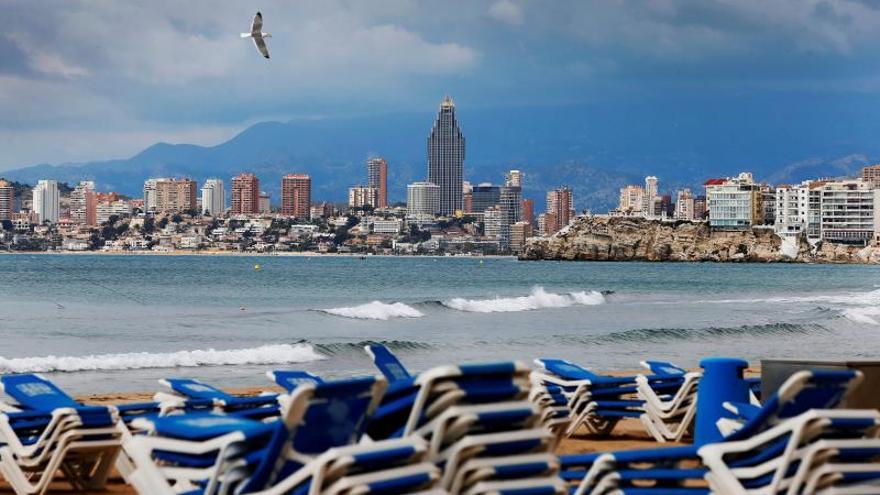
Benidorm during confinement
EFE
A strange summer
All in all, the prospects for this year are not entirely optimistic. The cancellation rates on reservations are very high - "if someone had reserved, they have canceled all milk and hardly any reservations are made," says Bilbao - but the mayor's office, tourism and employers are working to create a product that helps them smooth the break. "You have to communicate it well. I don't dare say 'come here because this is safe' without having done anything. You have to be coordinated to build trust," he insists. Among other things, they have published complete outlook reports and monitored interest in the city so that entrepreneurs are aware.
"It is easy for us to look at the market because we have been doing it for a long time. Now we expand the information. What does Singapore do? What do those who recover before? If I see a theme park that has opened in another city, I look at how they have done it and I'll tell the one here, "concludes the head of the strategy. "Studies have come out in other countries that are very good for us, because they analyze weeks in advance. Now people want to travel as a family because they have been isolated for a long time. Well, communication must be focused on families. Natural areas are sought. get ahead of that and put it on a platter to the city's business community. "
Like the original PATTI, the coronavirus plan was born in the form of a pilot project. "We do nothing that is not scalable and replicable. First we do pilots to improve the tools. When we take the final step, it is so that everyone can access it. Being the first smart tourist destination, we have the obligation to put our advances in technology at the service of the rest, "stresses the mayor. That is why they demand that, as soon as the new normality begins, the protocols are homogeneous. "Experience tells us that, if they are not common, it is difficult for us to meet them all. If you are in Greece and do not speak Greek, you leave your hotel and it is all closed, you go to the supermarket for beers. We will be in the same ones Before. They must be unique. The minister asked us for a document on this, which we have already given her. "
The municipal government also asks the national for an extension of the ERTE due to force majeure. The City Council approved a motion sent to the Ministry of Industry that includes it. In this motion they propose an Imserso for those under 30 years of age. "We are not going to have a normal average summer, you have to be realistic," concludes Mayor Pérez. What if the Spaniards preferred inland tourism instead of mass tourism for fear of infection? Would it make sense that Spain begin to depend less on the sun and beach? "These situations cause some to get the 'ticks' that always lie behind. All those who believe that mass tourism is not beneficial and can be harmful are those who, if everything goes wrong tomorrow, will have mass tourism in their towns The best prepared to manage tourism are tourist destinations ", ditch. "Change the model? Get to the data: There is no one more sustainable than us."









